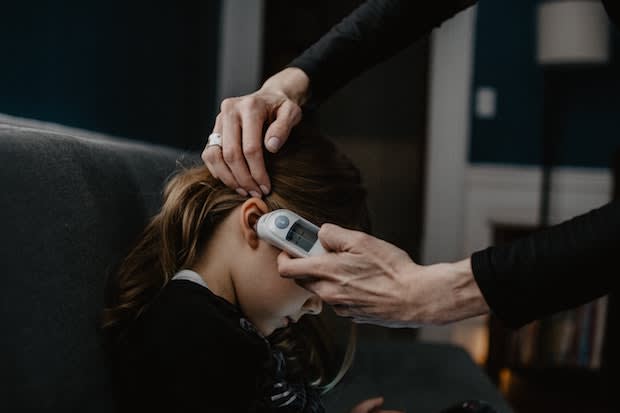Table of Contents
Epilepsy Overview
Seizures are serious medical events that can occur for a variety of reasons. There are so many possible causes of seizures that doctors often have difficulty diagnosing the exact cause of seizures. Extensive testing and monitoring are usually necessary to fully understand where in the brain the seizure is occurring and what could be triggering this event.
A proper seizure diagnosis is essential so that doctors can put the proper treatment plan together. Some people may have a one-off seizure as a child, but others have chronic seizure conditions like epilepsy. If you have two or more seizures of unknown cause in a short period of time, you may have epilepsy.
Epilepsy is a neurological disorder that causes abnormal brain activity that may lead to seizures, unusual behavior, and sometimes loss of awareness. Every epileptic patient may have a different seizure form, ranging from staring off into space to more severe symptoms like full-body convulsions. Anticonvulsant medications like including Keppra (levetiracetam), Topamax (topiramate), Dilantin (phenytoin), or Lamictal (lamotrigine) may be prescribed to control seizure symptoms and hopefully lessen the frequency of your seizures. [1]
In many cases, genetics alone can lead to the development of epilepsy. The genes of your parents and close family members can significantly impact your chances of having a seizure. If a parent has idiopathic (a disease of unknown cause) epilepsy, the child has a nine to 12 percent chance of epilepsy. If one twin has epilepsy, it is very likely the other twin will, too. This extends to all siblings – if one child has epilepsy, their brothers and sisters are at an increased risk. Interestingly, women with epilepsy who have children are more likely to pass the disease down than men with epilepsy. Doctors do not know why this occurs. Around 20 syndromes with epilepsy symptoms have been linked to single-gene disorders that cause brain abnormalities that may cause epilepsy. [2] Regardless of the circumstances, it is always best to avoid bumping your head. Injuring your head can cause lifelong injury and change your everyday life. Of course, some head trauma cannot be avoided, especially in the case of car accidents or other similar events. These injuries are referred to as traumatic brain injuries (TBIs) and may cause epilepsy in the future. Doctors have identified a condition called post-traumatic epilepsy (PTE), which describes epilepsy after a TBI. If your TBI is more severe, you are at a greater risk of developing epilepsy. One study found that there were 280,000 hospitalizations for TBIs in 2014. The CDC followed up with these people and found that one in ten people 15 years and older developed epilepsy in the three years after their TBI hospitalization. Those are not very good odds, so protect your head whenever necessary. [3] Some infectious diseases can lead to seizure symptoms. Around five percent of people with a central nervous system infection will experience a seizure. Seizures may be a symptom of the infection or a manifestation of the infection. But what is a central nervous system (CNS) infection? Some common CNS infections may include human immunodeficiency virus (HIV), malaria, bacterial meningitis, herpes simplex, or toxoplasmosis. Seizures may occur with these infections because the bacteria from the infection may produce inflammatory reactions in the brain. Infections can break down the blood-brain barrier, increasing the chance of seizures. Research has found that viral infections are more likely to cause seizures than bacterial infections. Encephalitis, or swelling of the brain, is another side effect of some infections, which is also linked to an increased risk of seizures. [4] People most often associate dementia with memory loss, but seizures are a lesser-known symptom. Dementia is a group of conditions characterized by an inability to remember recent events and perform everyday activities. Alzheimer’s is the most common type of dementia and affects mostly older adults. Researchers have known for a long time that seizures may occur with dementia, especially Alzheimer’s. This is because the risk of seizures increases whenever there is a change to the brain’s structure. Dementia develops when damage occurs to the brain cells, leading to communication problems between brain cells. [5] When these brain cells die or shrink, epilepsy may occur. Nerve cells in the brain become hyper-excitable, increasing the risk of seizures. In one study done by the Alzheimer’s Society, one in eight patients with dementia reported episodes of seizures. [6] If you have experienced a vascular event like a stroke, you are at an increased risk of experiencing seizures. A stroke occurs when the blood flow to the brain is obstructed, leading to severe side effects and death. An ischemic stroke is the most common type caused by a blockage created by plaque buildup in the arteries. Researchers have found that cerebrovascular disease is the most common documented case of seizures in older adults. This accounts for 22 to 69 percent of seizures in the elderly age group. [7] If you are at risk of experiencing a seizure, talk to your doctor. If you have already been diagnosed with a seizure disorder like epilepsy, make sure to take Keppra (levetiracetam), Topamax (topiramate), Dilantin (phenytoin), or Lamictal (lamotrigine) regularly to reduce your symptoms and prevent the chance of future seizures. The content in this article is intended for informational purposes only. This website does not provide medical advice. In all circumstances, you should always seek the advice of your physician and/or other qualified health professionals(s) for drug, medical condition, or treatment advice. The content provided on this website is not a substitute for professional medical advice, diagnosis, or treatment.
Genetics
Head Trauma
Infectious Diseases

Dementia

Vascular Diseases
